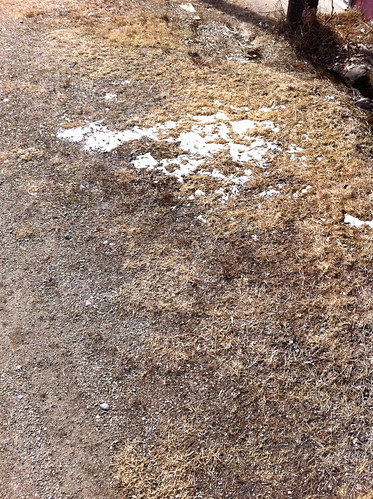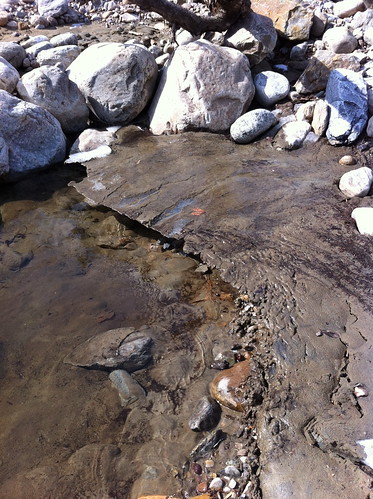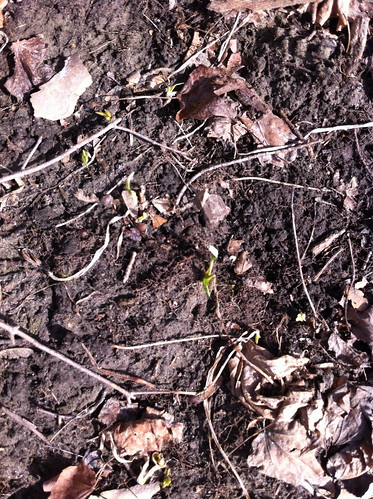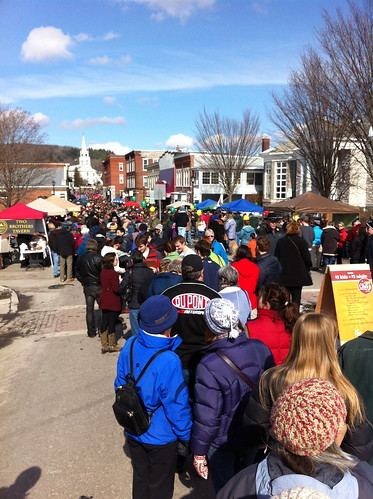
Above: After a surprise Saturday snowstorm, the last bits of soggy snow in East Middlebury met their demise early this week. The mountains of California, on the other hand, could pick up a foot or two of new snow this week... if not more.
So why do Vermont and California appear to have traded weather? The proximal cause, at least, is yet more unusual antics by the jet stream, which controls the track of storms and the movements of warm and cold air masses.
At the current time the jet stream is digging its way into California. It is forecast to plunge well south into Baja California bringing cold air with it. It then shoots north across the center of the country, bringing warm air from the Gulf of Mexico towards Vermont. Adding to this effect is the very early presence of the 'Bermuda High' (which is usually much further East this time of year and is known as the Azores High when in the winter/spring formation). This feature is helping pump warm, relatively dry air into Vermont.

Above: the last block of ice, half-buried in silt, melts along the Middlebury River. With the exception of a few cold, shady areas, the Champlain Valley is now entirely snow- and ice-free.
As Vermont experiences an early spring, the natural world is 'waking up' all around us. In the last week I've noticed red-winged blackbirds moving back into the cattail marshes, Canada geese high in the sky flying north, a kingfisher foraging by the river, and increased activity of chickadees, cardinals, and robins. Last year at this time these species were largely inactive or absent due to heavy snow cover. There are even a few green plants starting to break through the surface:

People are also out enjoying the beautiful weather, as was the case at the Vermont Chili Fest:

(This was actually the coldest day of the week, with temperatures mostly below freezing, but the warm March sun still melted most of the three to four inches of snow that had fallen the previous night)
So is this weather pattern a good thing? It all depends. It certainly has felt good to be out in the unusually warm Vermont weather. There is the risk that the warm weather could cause trees to leaf out early, to be later damaged by a heavy snowfall or cold snap. At the moment, though, the long-range forecast calls form an even warmer week next week, and with every passing day a blizzard becomes less likely. There is also the possibility that the dryness associated with this weather pattern will lead to drought conditions, but since last year was the wettest year on record in much of Vermont, the aquifers are all filled to the brim. There is some risk of grass fires. This warm weather may also end the sugaring season, though it also started early this year.
As for California, which has been in a dry pattern all winter, any precipitation is a good thing at this point.

No comments:
Post a Comment